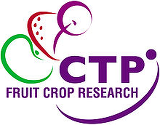REFERENCE: CTP_FCR_2020_12
Supervisors: Professor Stefanos Kollias (University of Lincoln), Dr Georgios Leontidis, University of Lincoln/University of Aberdeen (University of Lincoln), David May (University of Lincoln), Dr Mark Else (NIAB EMR).
This student is to be registered with the University of Lincoln. We are looking for a highly skilled PhD student with a background in Computer Science/Engineering and a strong interest in machine learning in agriculture.
Background
In soft fruit industry, farmers are required to provide the retailers with accurate numbers of their produce to make sure the market demand is being met. Failing to accurately do so can lead to a) underestimating production, hence having to waste their produce adding to food waste and increasing the carbon footprint, or b) overestimating production, hence not meeting the expectations of the retailer leading to hefty penalties or damage to their reputation. Providing accurate yield forecasting has long been the target of the fruit industry, which still suffers from high errors, due to the various uncertainties that forecasting entails, such as weather and seasonal variations. Another problem many farmers often face is intra-field fruit crop variation, i.e. specific areas of the farm performing worse than others. Modern farms and greenhouses collect various types of data for monitoring purposes. However, with the outburst of big-data analytics and Machine Learning this information can be used to develop algorithms and models that can be useful and inexpensive tools to the farmers. Given the highly competitive nature of the sector, farmers need tools not only for monitoring the field performance but also for providing them with insights such as accurate yield predictions. Currently, farmers rely on experience-based/empirical predictions, which sometimes do not represent the reality due to factors/patterns they fail to consider. That means they might provide wrong estimates to the retailers, leading to either wasting produce or missing to meet the demand.
Objectives and Approaches
This project aims to develop novel Machine/Deep Learning methodologies and Bayesian techniques to forecast fruit production and quantify uncertainty under settings that include high intra-field variations. The project consists of the following key activities:
Forecast yield from time-series and numerical data via developing novel deep learning techniques revolving around the use of recurrent and transformer networks. Our approach will be to collate and incorporate data pertaining to the growth of the plant as well as various environmental parameters. Our implementations will focus on developing Deep Transformer and Recurrent Kalman Networks with self-attention to identify properties of the data that incorporate the most useful information and will be optimised through Generative Adversarial Networks.
Incorporate expert knowledge to the data-driven model for improving the forecasting process. In application domains such as agriculture data do not come in abundance. Therefore, we aim at liaising with experts, such as growers, to also add physical constraints to our data-driven models.
Develop self-supervised learning techniques to enhance the learning process and implement robust and generalisable techniques. This will be achieved through the use of pretext tasks, such as data imputation, to enhance the representation learning not having to rely only upon the yield information but instead try to exploit interdependencies in the raw data that can assist with the task at hand. To do so we will create a loss function that will encompass the pretext task and couple it with the loss function of the task of interest, i.e. yield forecasting, to be used during the training phase.
Conduct intra-field variation through the use of datasets that include information of the yield across different parts of the field. Causal analysis will be performed to identify factors that might contribute to this variation and will also be combined with deep learning techniques and Monte Carlo dropout to obtain uncertainty estimates for each part of the field. The uncertainty estimate will accompany the yield forecasting for the different parts of the field.
Training
The studentship will provide advanced training in novel machine/deep learning techniques and working closely with crop physiologists and growers.
Application
Anyone interested should return the application and equal opportunities forms to recruitmentctp@emr.ac.uk citing the reference before the deadline of 28th February 2020.
Contact Professor Stefanos Kollias (skollias@lincoln.ac.uk) for an informal discussion.
